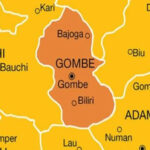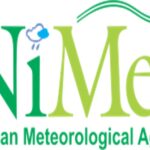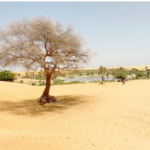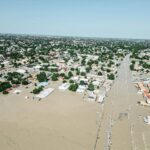Sokoto State is a model for livestock development. It created a Ministry of Animal Health and Fishery Development to execute its livestock programme. In this interview, the commissioner in charge of the ministry, Professor Abdulkadir Usman Junaidu explained why the state chose to focus on livestock development.
What would you say is your major achievement since you took over as commissioner in the Ministry of Livestock and Fishery Development in Sokoto State?
- Bishop of Wusasa advocates for declaration of state of emergency in North
- INVESTIGATION: 5 Years On, FG’s Whistleblowing Policy Falters
We assess the situation of the state, what is on ground, where we are coming from and our future. Based on that, we make sure the projects the government met on ground are completed, one of which is the cattle breeding programme, which was actually brought in by the previous administration. It was almost abandoned, but we made sure we completed it at the stage of bringing in foreign breed animals, about 117 and distributed to 13 cluster farmers. These farmers have started enjoying the benefits of this programme by having more milk produced in the state.
Before now, our local breed of cattle produced between three and four litres of milk per week, but now, because of the cross-breeding we had, we are able to produce 10 to 30 litres of milk per cow.
There has been an increase in milk production and job creation in these farms. And many of them have created mini diary farms because the government does not only give them these animals, they also give them facilities of dairy production, such as standby generators, as well as housing the animals. Two veterinary doctors are also allocated to each dairy farm so that they can consistently monitor the animals. Having done that, we re-examine our needs and decide to come up with another cattle breeding programme through the assistance given to us by the governor. We have been able to have sub components of the programme. We believe that 75 per cent of production lies on feed, so we embarked on pasture development.
Initially, our target was 5,000 hectares in Rabah Local Government Area. We have already secured the place and put in pipe borne irrigation system. We were about to commence after clearing the land, but insurgency in that area was very high, to the extent that there were threats to our workers. With the situation, we decided to suspend it and take the programme to a safer local government, which is Dogondaji, where we have the centre, which is large enough to accommodate what we have. There, we planted about seven species of grass, legumes and grains so that we would be able to package them and sell to our farmers at a subsidised rate, particularly the cluster farmers.
We have started harvesting. We are now trying to package it and sell to these farmers. We are also about to commence dry season farming. This will go a long way in curbing the situation. And that is going to be a continuous process.

You are doing a massive artificial insemination and embryo transfer, which is very rare in Nigeria. What is the state of that programme?
The programme is very successful. We are doing artificial insemination and embryo transfer across the 23 local government areas. We have covered two-third of the state; and we will continue. We are aware that our farmers cannot purchase these exotic breeds because of their high cost, so we bring in the semen and embryo and inseminate the animal. These semen and embryos are brought in from the US. The essence is to ensure that we improve the genetic potential of our local breed so that we can produce more milk and meat.
We also have a component of liquid nitrogen production. For you to have an effective artificial insemination and embryo transplant, you need to maintain them with liquid nitrogen. We have a factory that produces liquid nitrogen. We produce 40 to 45 litters a day. Each litre costs N2,000. We are also going to have commercial production, but for now, we are only maintaining our semen and embryo.
If you are improving the animals for milk and meat, do you also have facilities for processing, along this value chains?
Yes, we met a comatose dairy plant in the state, but the governor gave us the mandate to make sure we reorganise the place, put in new equipment and make sure the factory is working. We have completed the dairy plant and started producing milk collected from this cluster farms, which are supposed to be paying these services given to them at 50 per cent discount and through the provision of milk and the offspring produced at the farms. If they are producing five offspring, we just collect 1 or 2 and they will be transferred to another farmer. The essence is to ensure that within a short time, many farmers will benefit from this programme and we have the capacity to process 5,000 litre of milk per day. This is to ensure that the milk from the farm is not wasted. The milk produced can also be used in school programme so that our children can have all the required nutrients.
For the pastoralists, we will be collecting this milk at some centres. The idea is to establish milk collection centres across the 23 local government areas.
We have started separating our 19 grazing reserves so that farmers-herders clashes will be avoided. Currently, we are having less clashes in the state because we make sure the area meant for grazing is only used for that purpose. And we have a programme where we have inter-briefing between farmers and herders in some local governments. At Dongondaji we have a grazing reserve, where farmers and herders are co-habiting in the same reserve, farming and rearing animals peacefully. Through that dialogue and committee, we are able to advocate peaceful settlement. And with the demarcation of these grazing reserves, the farmers know their limit. There should be no encroachment.
We also engaged agro rangers to secure these farmlands and grazing reserves and we set up a committee, which has started working. Our grazing reserves are safer because perhaps the places we have chosen are secured. But that does not mean we don’t need to prepare for the future. We are hoping that when it goes up, we would be able to make it more secure. If not for this insurgency we would have gone to establish pasture development areas across the 24 local governments. However, there are some areas that may not be safe for such activities.
You seem to have an extensive programme for the cattle development, what about poultry?
The interest of the governor is also in the area of poultry development. He created a Poultry Development Agency, which is focused to addressing poultry issues. He appointed a special adviser on that agency and they brought some useful programmes on empowering the local farmers. They have already taken census of the farmers that are interested, and the government is going to intervene in providing some of the facilities they need.
Are you also doing something on fishery?
We are doing something in that regard. In realisation of the fact that our fishermen depend on natural fishes in our lakes and rivers, as well as the climate change that caused the depletion of these natural fishes, the state government procured over 2 million fingerlings and restocked all our lakes and rivers, where major fishing activities are taking place across the 23 local government areas of the state.
The state government is also supporting widows with goats across the 23 local government areas. Each widow will get five goats and one buck. A pilot programme of 2,000 beneficiaries will soon be done.
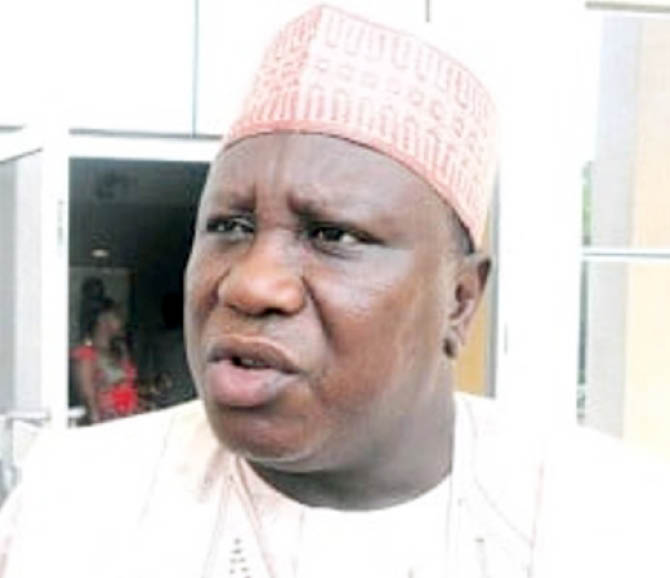
 Join Daily Trust WhatsApp Community For Quick Access To News and Happenings Around You.
Join Daily Trust WhatsApp Community For Quick Access To News and Happenings Around You.